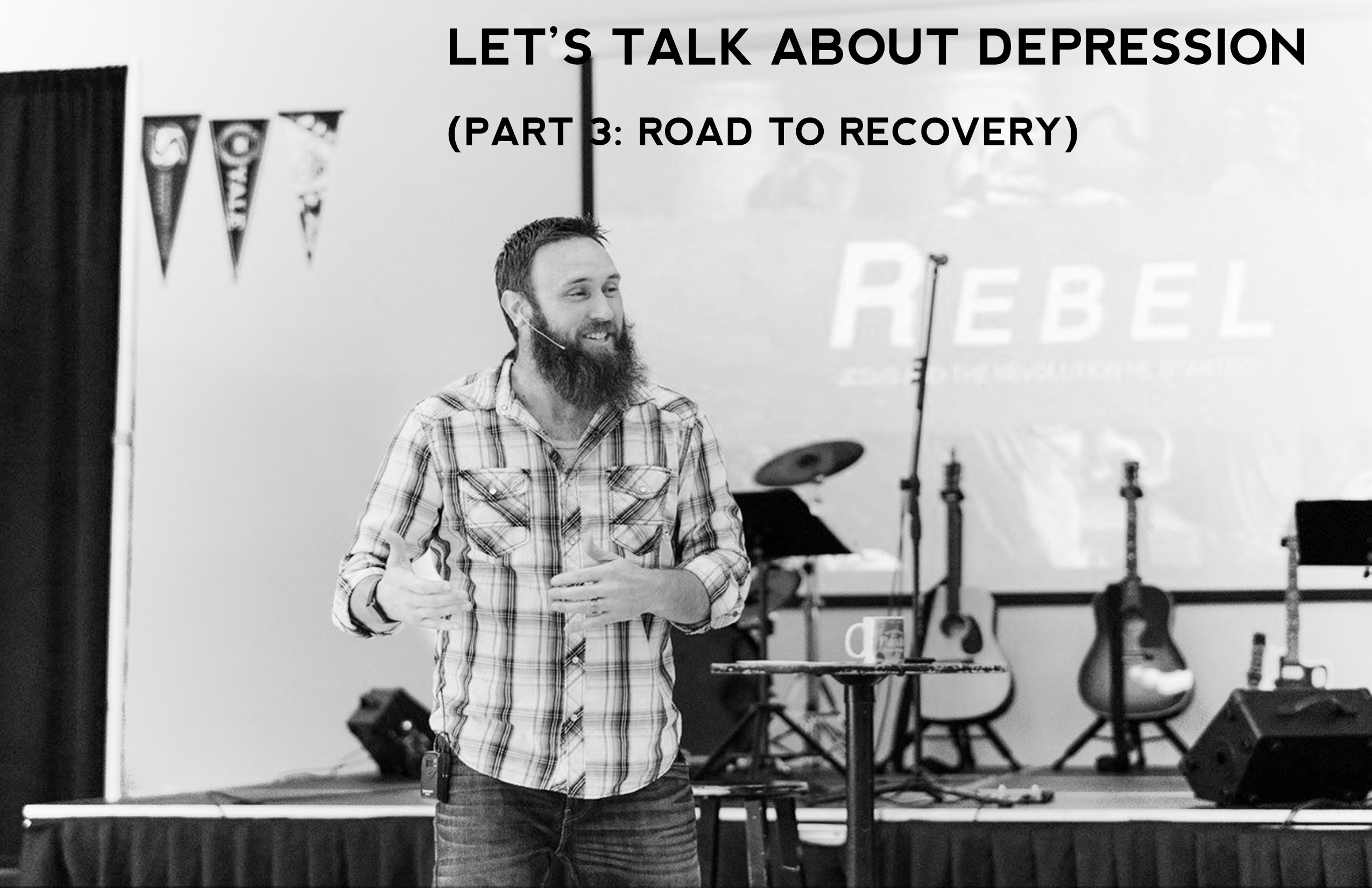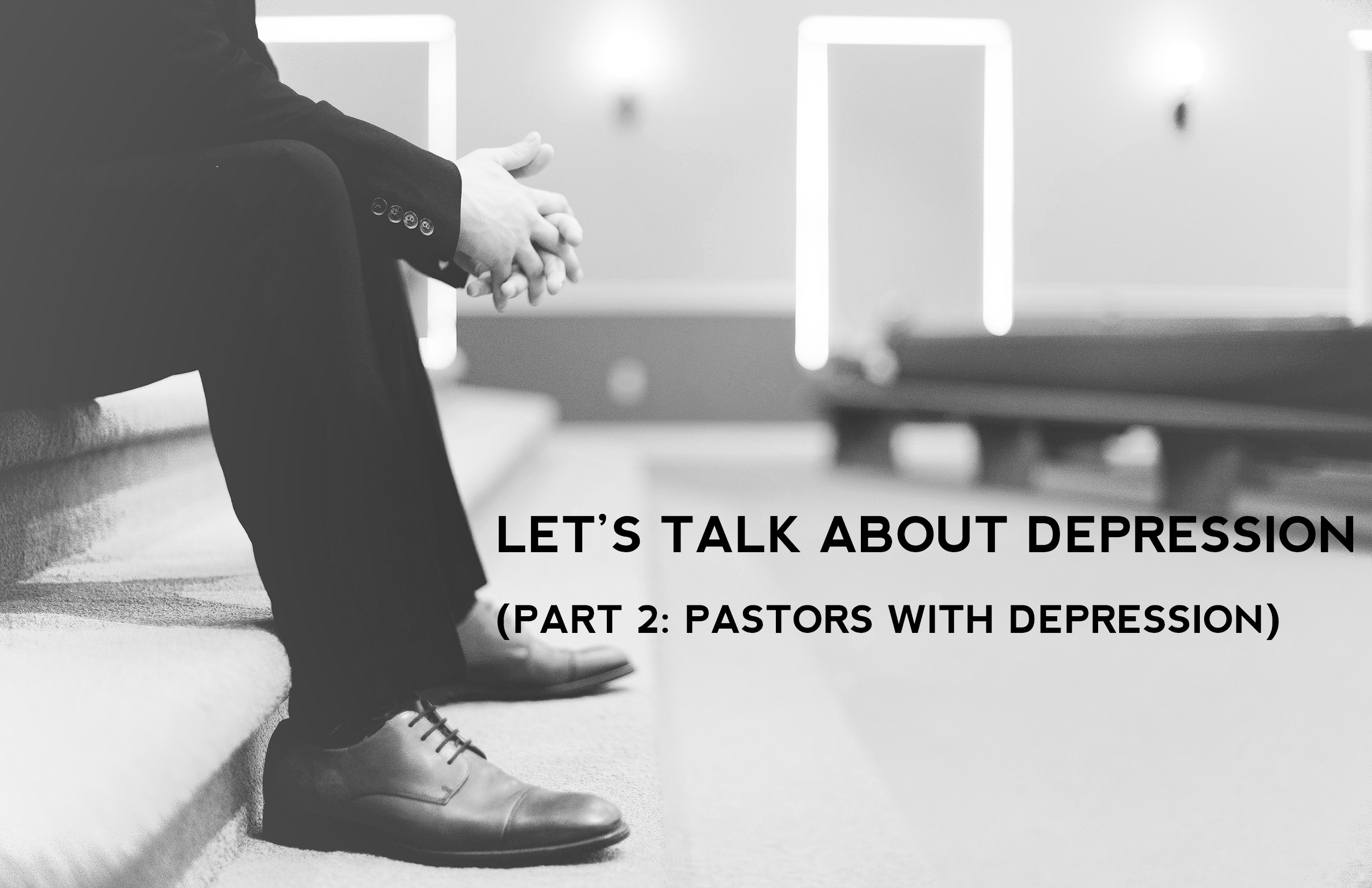Road to Recovery
Over the last couple of weeks, I’ve begun sharing some of the story of my struggle with depression. And I’ve come to a place where it’s time for me to share some things that I’ve felt have helped me, and I pray will be helpful to others also.
- A return to spiritual disciplines. I’ve said in previous posts that depression isn’t something that you just pray away, and I absolutely meant that. What I’ve also noticed, at least in my case, is that the greater the depression looms over me, the easier it is to get distracted from actually following Jesus as an individual. Like Peter trying to walk on the water, the storms of life can often be too hard to ignore, and our focus falls away from the one empowering us to walk over the tumultuous waves. Finding consistent quiet time, prayer, and Bible reading – not just sporadic and chaotically – has helped me immensely.
- Becoming open and vulnerable about my struggle. It’s been so good to talk about the thing that’s been weighing me down, and often, eating me up from the inside. Giving myself permission to “not being ok” has not only felt like dropping a heavy load off my back, but it’s brought so many people closer to me. I also have specific people I turn to, confide in, and am accountable to about my health.
- Leaning on my spouse. If there’s any one thing I have going for me in this life, it’s that I have a wife who has loved me unconditionally, and unwaveringly. Tiffany Markum is truly the embodiment of the love of Christ to me. And the love and grace she’s shown me through every season of our marriage only seems ever more evident now.
- Removing some of the pressures points. I admittedly allowed the ministry to become a source of idolatry for me. I was allowing the church I started to become so great a factor in defining who I was as a person, that if something happened to my ministry, it would throw me into a tale-spin of anxiety and identity. Every time I find my identity in something other than Jesus, it will fail me, and I will fail it. So I did what some would have considered a stupid decision – I left a full time role as lead pastor of my church to go bi-vocational. This forced me to divert a large portion of my attention away from the ministry that I was idolizing, and onto a different venture that I also love and can feel like my talents are being used productively. More on this later…
- Making room to rest. My mental and emotional health suffered massively in 2018, among other reasons, because I didn’t make time to rest, recover, and recharge at critical points. I didn’t go out fishing one time for the whole year, and that was one of the most rewarding, recharging activities I ever do. I still haven’t got on the water, but I’ve managed to make more time for my kids and my wife. I’ve enjoyed a few simple pleasures with dear friends. I’ve made space for God to speak to me – and for me to stop and listen. I’ve begun to pray more consistently – like I did before everything became so overwhelming.
Here are a few things I’m not doing yet, but trying to work on to continue to be healthier mentally and emotionally…
- Go fishing. I already mentioned this, but it is truly therapeutic to be in a boat, on my own or 1-2 friends, line in the water, surrounded by the sounds of the ocean. I miss it greatly and intend to hit the water soon in 2019 when it warms up a bit.
- Exercise again. In 2016 and 2017, I had gotten back into the gym consistently after years of not working out often enough. 2018 marked a departure from that discipline, and I intend to get back to working out regularly soon.
- Reading. My reading plan for 2018 became all but abandoned! I did listen to dozens of podcasts – hundreds of various episodes – but I intended to finish far more books than I ended up reading. I’m attacking that hard in 2019 and I’ll share my book reading list later.
One notable thing missing, is medication. I do not intend to go on medication for my anxiety – not because I think it’s wrong. I want to be clear: if you need medication to cope with your anxiety or depression, then by all means, please take care of yourself with the guidance of professional medical advise! I chose not to (up to this point) because I’m personally averse to all medication whenever possible. I feel that way about Advil or Tylenol as well, but I still take it when my headaches are unbearable. I feel the same principal is necessary when depression becomes too much to bear without medication. I have friends who say that antidepressants saved their life – I also have friends who have told me horror stories of how it’s messed with them. I believe all drugs carry risks, so I avoid them when possible, and take them when necessary.
That’s what’s been going on in my life and how Gods used different means of recovering and managing my anxiety/depression. I’d love to hear what has worked for you in the comments below!
Blessings,
John



